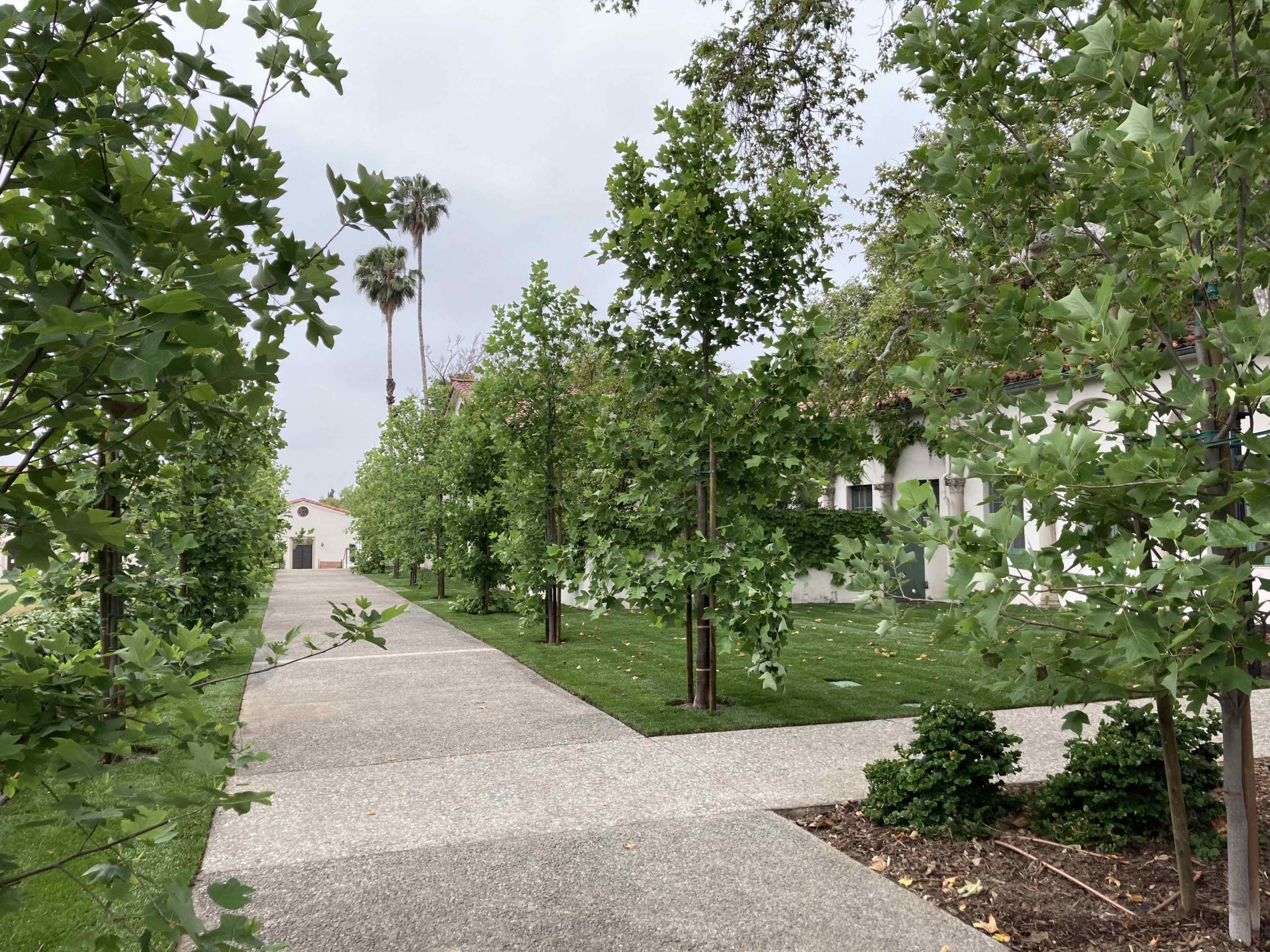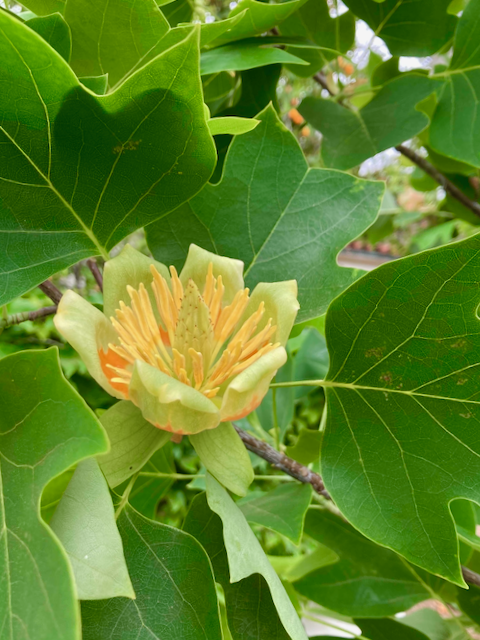
Spots like Tulip Walk were designed to make Scripps a meditative respite—and our donors are key to that vision.
By Emily Glory Peters
Scripps’ serene surroundings are arguably as meaningful to our students as the content of our curriculum. Our founder, Ellen Browning Scripps, firmly believed the beauty of the grounds should “seep into students’ consciousness”—as though nature itself would give ingress to deeper academic reflection. Landscape Operations Manager Joya Salas and her team kept this vision in mind when, with support from past donors, they restored a special spot on campus this summer.
“Many people aren’t familiar with Tulip Walk by name, but it was drawn into the original landscape blueprints of the College and was installed during the initial construction of campus in the early 1930s,” Salas says of the restoration project. Located along a corridor near the president’s office, this walk once boasted not tulips, but a double row of Liriondendron tulipfera—American tulip trees whose distinctive blooms resemble the flower.
The walk’s restoration is part of a larger, phased strategy to address the aging tree collections on campus. Compromised by disease and structural issues, Salas explains, seven of the 22 original trees along Tulip Walk have been removed over the last century, and she and Vice President for Business Affairs/Treasurer Dean Calvo concluded that restoring the path to its prior glory would be the perfect starting point.
With a dedensified campus due to COVID-19, timing was ideal—and thanks to Scripps donors, funding wasn’t a barrier.
“The grounds department is fortunate to have donor funds that impact multiple landscaping projects across campus,” says Salas. “Two of the largest that supported Tulip Walk are the Glen and Gloria Holden Maintenance Fund and the Jean Bixby Smith Campus Heritage Fund.”

Life Trustee Jean Bixby Smith ’59, whose sister Barbara and mother Betty were also alumnae, noted her family’s affection for the College grounds. Bixby Smith called Scripps “an intriguing, mystical place of possibilities,” and followed in her mother’s footprints by endowing a fund to support campus preservation projects like Tulip Walk.
Life Trustee Gloria Holden was similarly generous in her family’s decades-long devotion to the College, with their endowed fund helping with the beautification and upkeep of Scripps’ buildings and grounds. The Holden’s donation not only supplied considerable funding to refresh Tulip Walk, but in recent years was used for other undertakings, including the creation of an outdoor gathering space between several residential halls and the renovation of the Rose Garden with waterwise plants, drip irrigation, and a myrtus hedge to recapture the original path from Dorsey Hall to Toll Hall.
Honoring these historic details is the hallmark of Salas’ work across campus. She and her team regularly consult Scripps’ early layouts and photos to ensure the College’s current landscape reflects its aesthetic past. It’s a worthy effort, she says, but one which takes considerable time, budgeting, and intention.
“Key areas around Scripps are in the National Register of Historic Places, but I also think of Tulip Walk as being historic. In line with our tree replacement policy of ‘like for like,’ we decided that if we remove trees, they must be replaced with the same species, if possible,” she says. Initially afraid she’d find nothing but saplings of this uncommon tree, Salas was delighted to discover just what she needed—“gorgeous, well-developed” tulip trees that are currently in full bloom on campus.
That means the Scripps community will have to wait a while longer to view the elusive blooms for themselves. Still, there will be a treat in store for returning students, staff, faculty, and visitors come campus reopening this fall semester.
“Tulip trees are deciduous and change color with the seasons—so the leaves will become a bright rusty-yellow in autumn,” she says. “Something to look forward to!”
The Scripps Fund supports essential campus enhancements and preservation to keep the College grounds at their best. To support these efforts, please click here.

